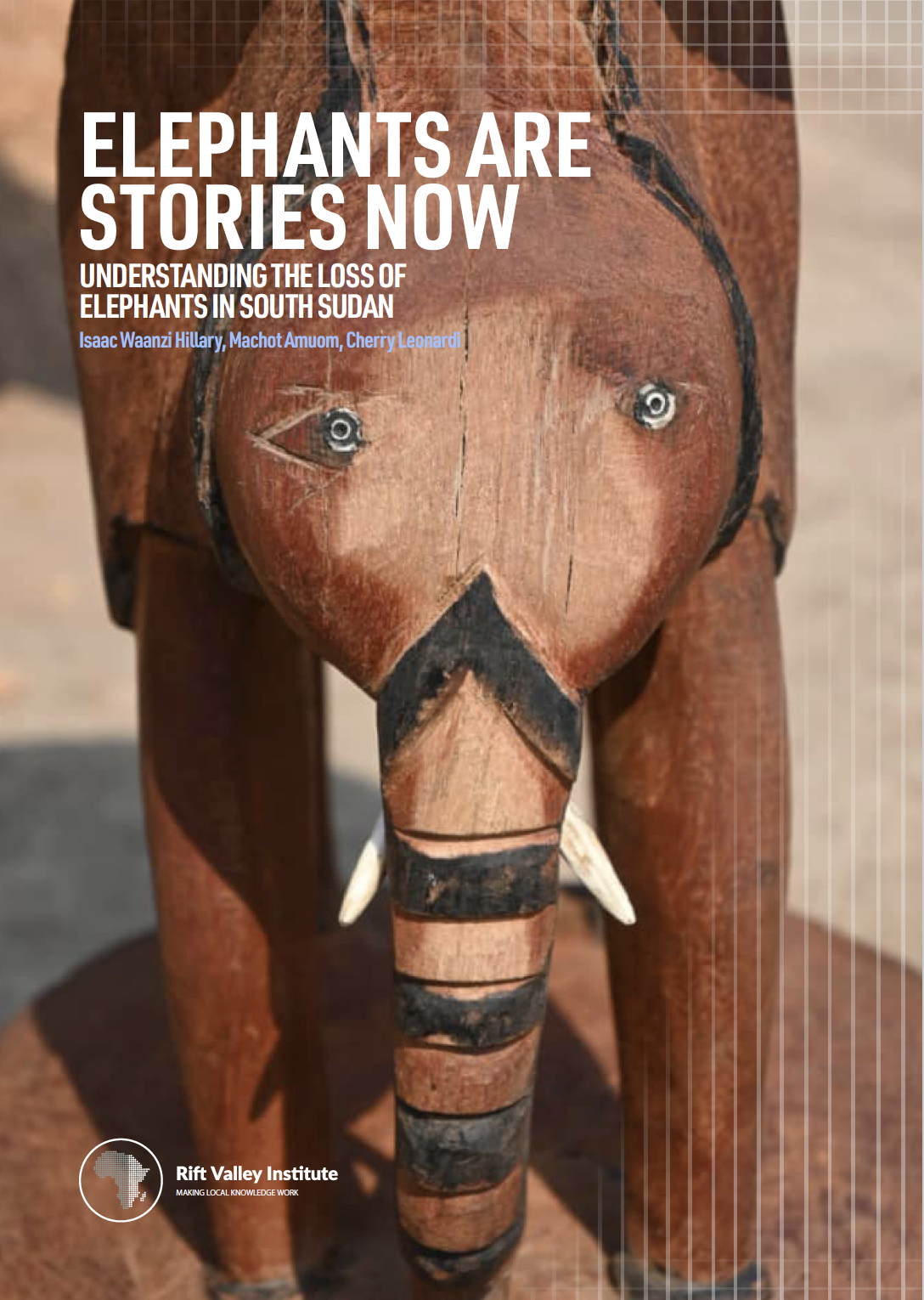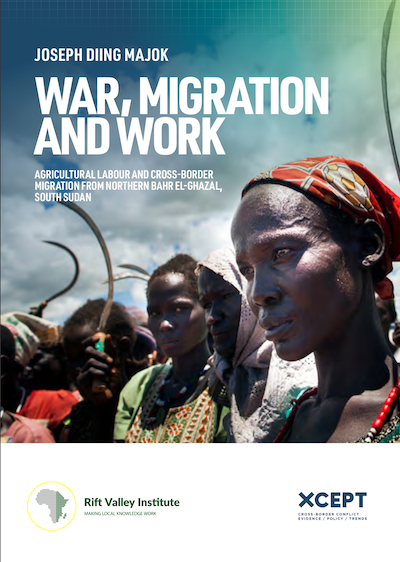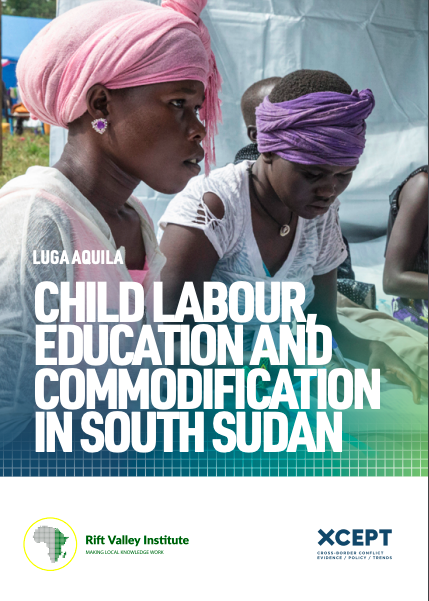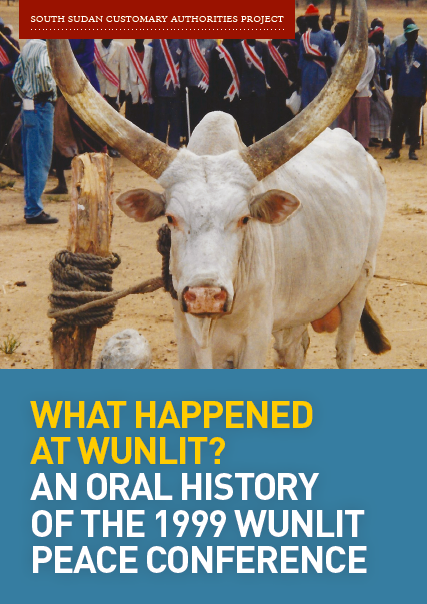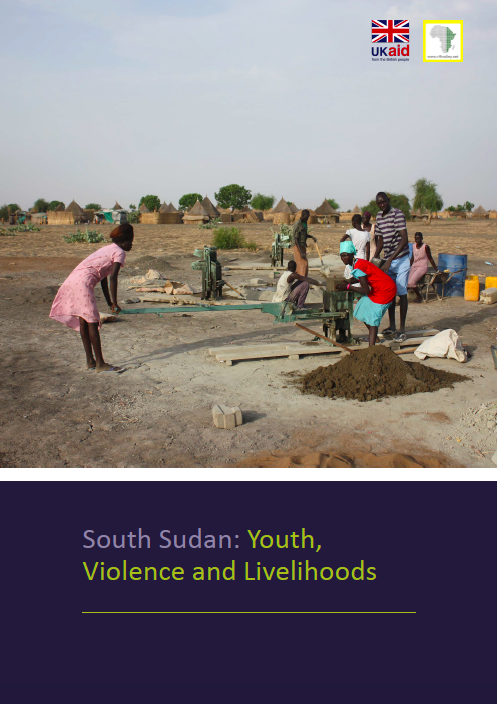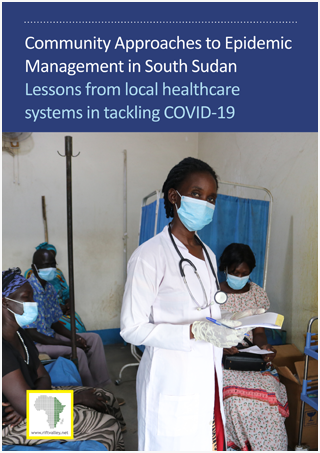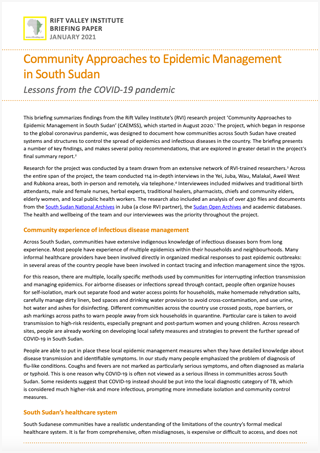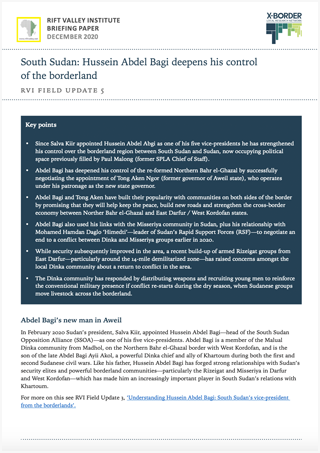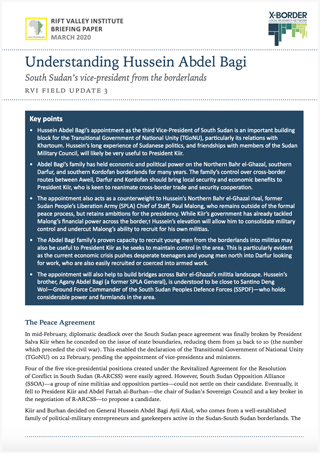UNDERSTANDING THE LOSS OF ELEPHANTS IN SOUTH SUDAN Introduction Elephants are iconic animals in South Sudan, featuring on bank notes and state flags and in many myths and sayings. ‘When the elephants fight, the grass suffers’ is one example…
RVI publishes books, research reports, research papers, briefings and meeting reports in a range of formats. Publications cover policy, research, arts, culture and local knowledge in the countries of eastern and central Africa. Research publications—books, reports and papers—are peer-reviewed. Some RVI publications are also available in French and/or Arabic.
The RVI is a signatory of the Budapest Open Access Initiative (2001); all publications are free for download in PDF format under Creative Commons licences. The views expressed in books and reports published by the RVI are those of the authors, not the Institute.
SEARCH
PUBLICATION TYPE
LANGUAGE
REGION
COUNTRY
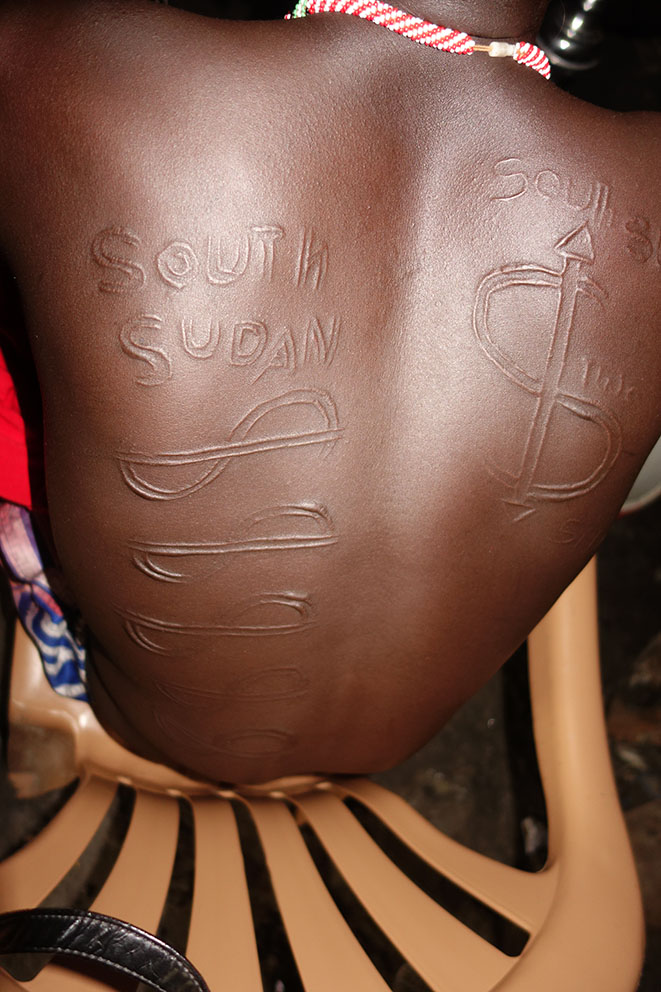
- By Diana Felix da Costa, John Boloch Kumen
- Download
This blog post discusses how the Murle social institution of age-sets (sometimes known as generations) has, in recent years, been fragmenting and is becoming increasingly militarized. Body scarification is a valuable lens through which to view these transformations, as…
War, Migration and Work examines the history of labour migration and labour relations in present day South Sudan’s Baher El-Ghazal borderlands with Darfur and Kordofan (regions of present day Sudan). Beginning in the nineteenth century, the report charts the evolution…
Until the latter part of the twentieth century, South Sudanese boys and girls grew food on household farms for their families to eat. Under this system, children’s work and education were hard to distinguish. Today, however, many boys and…
PRE-PRINT Wunlit was the most successful peace meeting in the history of the Sudans, a meeting where customary authorities took a leading role. It brought together representatives of Nuer and Dinka communities west of the Nile, communities that had…
This report explains the realities of life for South Sudan’s youth population, the majority of whom are living in conditions of extreme economic precarity. Young people face enormous challenges in trying to survive and progress in their lives. This…
South Sudanese people have extensive knowledge of infectious diseases and experience of organizing responses to epidemics during wars and other crises. There are multiple, locally-specific methods used by communities for interrupting infection transmission and managing epidemics. This report documents…
This briefing summarizes findings from the Rift Valley Institute’s research project, Community Approaches to Epidemic Management in South Sudan (CAEMSS), which started in August 2020. The project, which began in response to the global coronavirus pandemic, was designed to document how…
In February 2020 Sudan’s president, Salva Kiir, appointed Hussein Abdel Bagi—head of the South Sudan Opposition Alliance—as one of his five vice-presidents. Abdel Bagi is a member of the Malual Dinka community from Madhol, on the Northern Bahr el-Ghazal…
Key points • Hussein Abdel Bagi’s appointment as the third Vice-President of South Sudan is an important building block for the Transitional Government of National Unity (TGoNU), particularly its relations with Khartoum. Hussein’s long experience of Sudanese politics, and…
Recent Publications

EWNET Writes: Writing Workshop Session I
December 18, 2025
The Ethiopian Women Researchers Network (EWNET) inaugural writing workshop series aims to not only provide women researchers with uninterrupted time for their scholarly projects, but also build a supportive academic community. The first session, entitled ‘EWNET Writes: Writing Workshop Session

SSC-Khaatumo: Perspectives on the significance and implications of its formation
December 12, 2025
On 15 April 2025, during a visit to the city of Las Anod in Sool, Prime Minister Hassan Abdi Barre officially declared the federal government’s recognition of SSC-Khaatumo (SSC-K hereafter) as a federal member state, marking an important milestone in

Aid and Conflict Sensitivity in Contemporary Ethiopia
November 17, 2025
This study assesses conflict sensitivity practices among humanitarian, development and peacebuilding (HDP) actors in Ethiopia. It seeks to raise awareness and foster a deeper understanding of the evolving aid landscape in the country while analysing the challenges that affect conflict-sensitive

